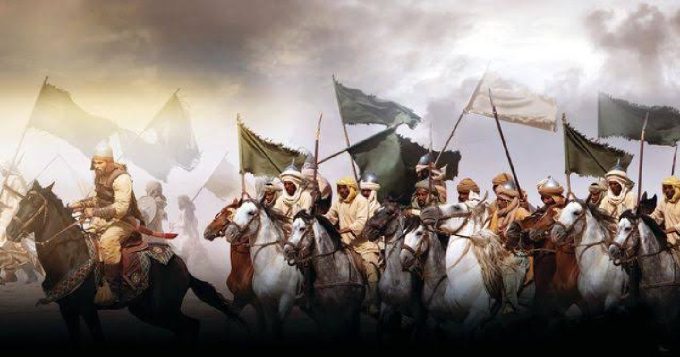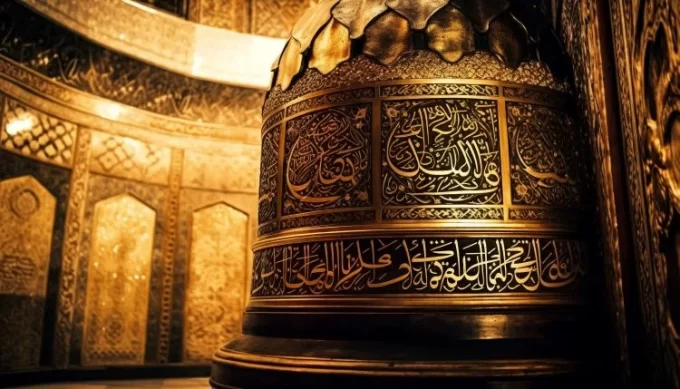Uthman bin Affan was one of the companions of the Prophet Muhammad SAW who played a major role in Islamic history. In addition to being known for his gentleness, generosity, and piety, Uthman is also remembered as a leader who took a monumental step in maintaining the unity of Muslims through the unification of the Quran. This step not only guaranteed the integrity of Islamic teachings, but also enabled its spread to various corners of the world without any differences in reading.
Challenges for Muslims during the Uthman Era
After the death of the Prophet Muhammad SAW, Islam grew rapidly under the leadership of the caliphs. The territory of Islam expanded to include the Arabian Peninsula, Persia, Egypt, and North Africa. With this spread, Muslims came from various cultural and linguistic backgrounds.
However, with this diversity came a new challenge: differences in how to read and understand the Quran. During the time of the Prophet, the Quran was revealed gradually and memorized by the companions. Some of them also wrote the revelations on palm fronds, animal skins, or bones. Although there had been efforts to collect the Qur’an during the time of Caliph Abu Bakr and Umar bin Khattab, differences in dialects and reading methods in various regions began to cause debate.
At that time, Muslims in Kufa, Basrah, Syria, and Hijaz had different reading methods because they read based on their respective dialects. When these differences became more prominent, there was concern that this could divide the unity of the Muslim community.
Visionary Steps of Utsman bin Affan
Seeing the potential for this division, Utsman bin Affan as the third caliph immediately took action. He held a meeting with senior companions, including Zaid bin Tsabit, one of the writers of revelation during the time of the Prophet. In this meeting, it was agreed to compile a standard manuscript that would be a reference for all Muslims.
Utsman appointed a team led by Zaid bin Tsabit to collect and compile the Qur’an based on the readings taught by the Prophet Muhammad SAW. This manuscript was compiled in the Quraysh dialect, in accordance with the Prophet’s dialect, to avoid differences in interpretation. After completion, Uthman ordered that this standard manuscript be reproduced and sent to various regions of the Islamic Caliphate, including Kufa, Basrah, Damascus, and Egypt.
Erasing Differences for the Sake of Unity
In addition to distributing the standard manuscript, Uthman also ordered that other copies that differed from this manuscript be destroyed. This step was taken to prevent further division. This decision may sound strict, but it was one of the most strategic steps in maintaining the unity of the Muslim community.
As a result, Muslims around the world began to read and understand the Qur’an from the same manuscript, so that there were no more differences in reading that could trigger disputes. This success had a major impact on the development of Islam until now, where the Uthmani manuscript became the standard for reading the Qur’an throughout the world.
The Virtues of the Uthmani Manuscript
The Uthmani Manuscript is not only a reference for reading the Qur’an, but also a symbol of the unity of Muslims. With this mushaf, the messages of the Qur’an could be delivered consistently across regions, allowing for a wider spread of Islam. To this day, the text of the Qur’an that we read still refers to the Uthmani mushaf, whose authenticity has been maintained for more than 14 centuries.
Lessons from Uthman’s Wisdom
Uthman bin Affan’s move to unify the Qur’an is a testament to the wisdom and vision of his leadership. He realized that the unity of Muslims was more important than maintaining diversity of readings. Uthman’s courage to make this major decision not only protected the teachings of Islam, but also ensured that the Qur’an remained a guide to life for Muslims throughout the world.
Uthman’s Legacy for Muslims
Today, we can still feel the benefits of the major decision taken by Uthman bin Affan. Thanks to the unification of the mushaf, the Qur’an can be studied and memorized in the same way throughout the world. This legacy is one of the real proofs of Uthman’s dedication to preserving Allah’s religion.
As caliph, Uthman bin Affan taught us the importance of making visionary and courageous decisions for the good of the people. His steps in uniting the manuscripts of the Koran are one of the best examples of how a true leader is able to look far into the future to protect religious values and the unity of the people.
Uthman bin Affan’s decision was not only an important historical milestone in Islam, but also inspired the people to continue to maintain the unity and integrity of the teachings of the Koran. He was not only a friend of the Prophet, but also a leader who left an eternal mark on generations of Muslims until the end of time.











Leave a comment